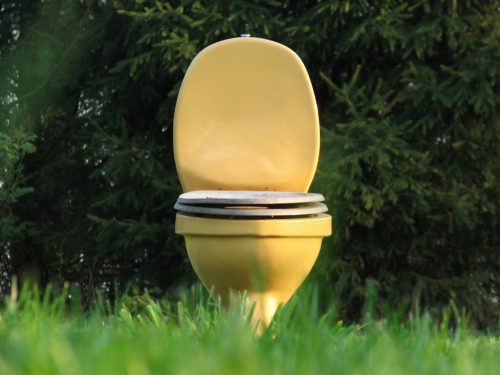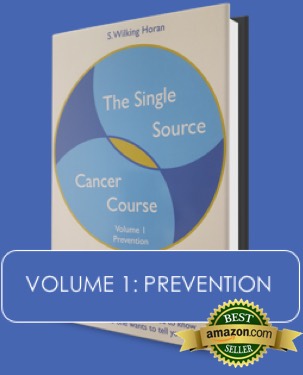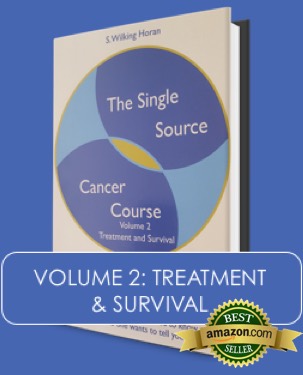 DIY KITS TO DETECT COLON CANCER
DIY KITS TO DETECT COLON CANCER
Hello everyone and welcome once again to #Wellness Wednesday. Gosh, I’ve had so many people ask me recently about the new Do It Yourself Colon Cancer Tests, I thought we’d devote today to just that subject.
To begin, colon cancer – or colorectal cancer – is the third most common cancer among men and women the world over. The bad news is that it’s unfortunately the second leading cause of cancer death in the United States following lung cancer. The good news is that the new rates of colon cancer diagnoses and deaths among adults aged fifty or older in this country are decreasing. AND, with proper screening colon cancer is nearly 100 percent preventable. Now, that’s not just good news, that’s great news!
So, let’s review. First, the major risk factors for colon cancer include:
- Family history of the disease;
- Older age;
- Tobacco use;
- Alcohol misuse;
- Physical inactivity;
- Obesity;
- Dietary factors, and;
- Medical conditions, including Crohn’s disease, ulcerative colitis, Lynch syndrome and Familial adenomatous polyposis.
Second, the most common screening procedures for colon cancer are the:
- Sigmoidoscopy;
- Colonoscopy, and;
- Fecal Occult Blood Test or FOBT.
Fairly new on the market, however, we now have some tests for this cancer that we can conduct in the privacy of our own home. And, these tests are similar to the standard Fecal Occult Blood Test or FOBT that is normally performed in your physician’s office.
Simply, this is how the FOBT works. A small stool sample is sent to a lab for analysis to detect blood in the stool. This is important because colon cancer typically begins as a harmless polyp that degenerates into a cancer. A polyp is tissue that grows on the inner surface of the colon or rectum. Polyps can be flat or raised. And, through the normal process of digestion, when our stool passes through the colon, it can “bruise” these polyps causing a small amount of blood to be released from the tissue. This blood typically is not visible to the naked eye – it is “hidden blood.” This is what occult means – “hidden.” And, this is what the FOBT can detect — blood, which may mean precancerous polyps or cancerous tissue exist in our colon.
Okay – so there are two DIY Colon Cancer Tests which have been approved by the Food and Drug Administration. They both are designed to detect blood in the stool and this is how they work.
- The first is known as the guaiac or g-FOBT. This test uses a chemical to detect heme – a component of the blood protein hemoglobin. This test, however, can also detect heme in some foods such as red meat. So, certain foods have to be avoided before conducting this test.
- The second is known as the Fecal Immunochemical Test or FIT. It also is known as the i-FOBT. This test uses antibodies or immunochemicals to detect human hemoglobin specifically. As a result, one’s diet does not have to be restricted before use.
For both types of tests, the rules are basically the same. A small stool sample is collected by the individual at home and then the sample is sent to a lab or to one’s physician for testing.
One of the better known DIY Tests is called Cologuard. This is similar to the FIT in that this test detects hidden amounts of blood in the stool with an immunochemical. It also, however, detects nine DNA biomarkers in three genes that have been found in colorectal cancer and precancerous polyps or adenomas.
The upside to these DIY Kits is that they require no preparation like that required for a colonoscopy, they’re reasonably inexpensive and they can be performed in the privacy of your home. The downside is that they may give a false-positive result by identifying non-cancerous conditions that produce trace amounts of blood like hemorrhoids, Crohn’s disease or ulcerative colitis. Also, if the result is positive, the individual will need to undergo a regular colonoscopy for verification. And, if the FOBT is the only colon cancer screening procedure one undergoes, the U.S. Preventative Services Task Force recommends yearly testing.
That said, these tests are still a great step forward in the prevention of colon cancer. Quite simply, if something is easy to do, one is far more likely to do it. And, we are all about cancer prevention – it’s so much easier than cancer treatment.
And, for those who are really into DIY projects, a more advanced test may soon be available – one that actually allows the individual to insert her or his stool sample into a solution-filled canister that will provide results in one to three minutes for self-examination! Just poop, scoop and remain astute. No lab involved!
Remember, prevention is the key to all things cancer. And, if we can’t completely prevent cancer, we need to do everything we possibly can to detect it early. And, these DIY tests will help us accomplish that goal. As I always say, “Don’t be Reactive – be Proactive!”
Once again, thanks for joining me everyone. Until next time stay in Good Health and . . .
TAKE THE COURSE AND TAKE CHARGE!



Leave a Comment